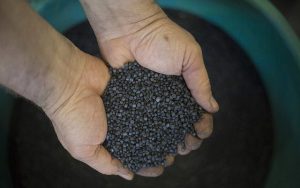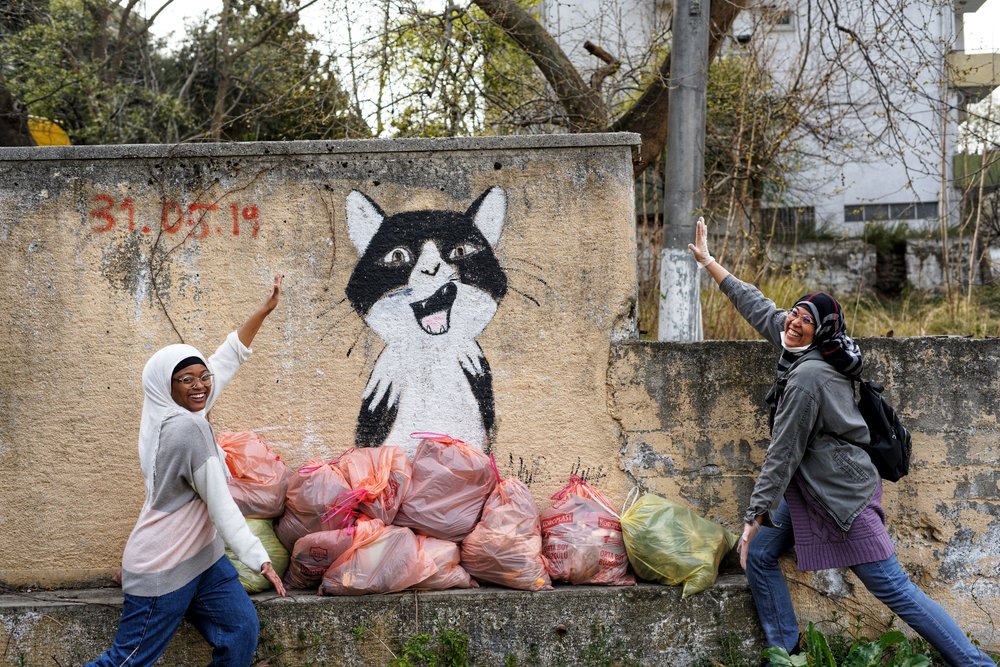Responsible Consumption and Production


Home » Responsible Consumption and Production » SDG 12 – Collaborating for Change: The Role of Local Leadership in Climate Action-By Dr. Eitan Eliram Lead Innovation Strategist Nov. 2024
SDG 12 – Collaborating for Change: The Role of Local Leadership in Climate Action-By Dr. Eitan Eliram Lead Innovation Strategist Nov. 2024
Nowadays trash is inevitable. Each year our planet becomes home to more than two billion tons of trash, and in Israel alone this number grows by 1.8% annually. How can we avoid unnecessary packaging when it’s the go-to for nearly all manufacturers? The truth is that we probably can’t – but we can reduce the amount of trash accumulating in our public spaces.
The urgency of the crisis cannot be underestimated and requires timely and collective action. That is why many young activists, including the founders of a movement called Tuesdays for Trash, are coming to the rescue to tackle the growing issue of inadequate waste management by mobilizing communities across the globe to fight for a cleaner future on our planet.
Tuesdays for Trash began at a grassroots level, originating in Portland, Oregon, and advocates for individuals worldwide to dedicate time every week to our planet through trash cleanups in their local communities and natural spaces. A seemingly simple action but one that has led to participants from more than 40 countries engaging to remove over 31,000 pounds of litter from our environment.
The movement has so far established 12 chapters, including one in Tel Aviv. When it comes to official governmental policies concerning trash management, Israel is an example of a state with a well-developed legislative system addressing Sustainable Development Goal 12, which calls to ‘ensure sustainable consumption and production patterns’.
Israeli laws advanced by its Environmental Protection Ministry – such as the Collection and Disposal of Waste for Recycling Law (1993), Collection and Disposal of Waste for Recycling Regulations (1998) and the Packaging Bill (2010) – are not only providing a lucrative legal framework for climate crisis mitigation but are also creating an inclusive and widespread background for civil society’s active participation, like that of Tuesdays for Trash.
The uniqueness of Tuesdays for Trash and similar organizations is found in its ability to break down a massive environmental issue, such as poor waste management, into smaller more tangible actions that make the idea of activism less overwhelming to the everyday individual. Picking up trash serves as a great way to foster local civic participation and empower community members to weaponize their voices for change that directly addresses SDGs.
For example, the Tel Aviv chapter has been organizing regular clean-ups all over the city for the past two years and as the movement’s founder recently shared: “The cleaner an area is the less people feel comfortable littering it, we can visibility see much less trash and now sometimes it is even hard to find places where clean-ups are needed”.
Although the garbage crisis is a looming obstacle that can sometimes feel impossible to avoid or address, collaboration between citizen-led initiatives and governmental entities can serve as an effective means of mitigation.
This article was written by: Vladislava Kuz
Related articles


SDG12- TIPA – Decomposing bad plastic habits with fully compostable ones
Responsible Consumption and Production “Imagine…if you could treat flexible food packaging like an orange peel…like organic waste, a natural resource.” What will become a historical


SDG 12 -Waste not, want not. HomeBiogas
Responsible Consumption and Production The potential for renewable energy is all around us, even the rubbish we just disposed of, it’s right there! Three friends


SDG 12- Spinning Garbage into Gold – the Startup Nation Does It Again
Responsible Consumption and Production SDG 12 -Spinning Garbage into Gold – the Startup Nation Does It Again Turn household, landfill trash into reusable plastic? Impossible!



















